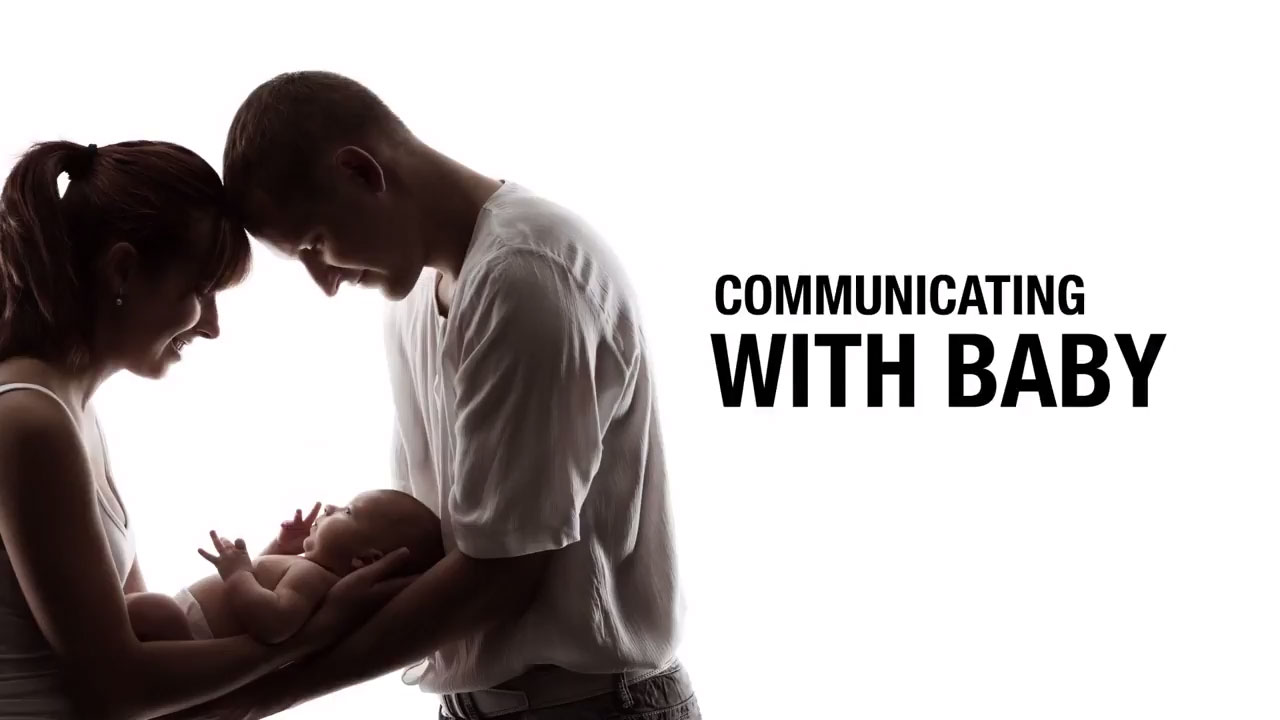Communicating with Baby
- Developing security and trust with your baby is critical to the development of the relationship and to their development that is emerging toward separating from you over time. When a child feels a sense of security, they feel a sense of safety as well, and that allows them to explore. Babies communicate in many different ways. Not just through their cries and their vocalizations, but also through their gestures and body language and eye contact. When parents learn their child's cues learn how to read them and respond appropriately over time, consistently, this builds trust and security in your child. There is a sense of feeling as though their communication is understood their communication has meaning that the world responds to them and this builds confidence and self esteem, and ultimately moves them toward the task of autonomy, which is the ultimate task. Talk to babies. It is very important. I recommend to consider the quote by Dr. Seuss that says, "a person is a person, no matter how small". And with this quote, it gives us an invitation to really consider a baby as an important human being. Not just because of his size, but because of the person that he is. And I once heard somebody say, "Why not treat your baby as your guest of honor?" And if you have that idea, I bet you you will be able to relate to him in a very different way. And when you talk to your baby, it's very important that you know that you are introducing him to a language, you want to bathe him in language. He's creating a lot of connections in his brain because of that language interaction with you. You want to make sure that the language is the language that you want him to learn. So this is how I talk to my baby. Yes, I see you. You're looking at me. You're really looking at me. You're looking at my hair. Yes, it's different today, I have it down. You're used to seeing me with my hair up. You're looking there? There are a lot of lights. There're a lot of lights up there. Is that bothering your eyes? I can see you squinting. So, that's the way I talk to my baby and why I recommend that you really consider talking to your baby in the way that you would talk to another person. Narrating to your baby is a very important part of your relationship development. Narrating means to tell your baby what's happening next, what you're going to do to them, what they may be seeing, what they may be experiencing. For example, you might tell your baby: I'm gonna change your diaper or I'm gonna pass you to daddy. When we do this, it gives children the respect that they deserve and it builds the relationship, which is the critical cornerstone for all other development. So we really wanna put our focus there. This is where children are driven, through the relationship, to engage emotionally, to explore physically, and to develop cognitively. Children look to us to be their storytellers. When we tell them what's happening, and we narrate to them, we help them make sense of their experience, we help them to regulate their emotions, and we help them build language.
Therapist and parent educator Allison LaTona and Infant Toddler Consultant Elsa Chahin discuss the importance of communication with a baby




 GET ACCESS TO ALL PREMIUM CONTENT WITH NO ADS FOR $4.99/MONTH
GET ACCESS TO ALL PREMIUM CONTENT WITH NO ADS FOR $4.99/MONTH




Login or Register to view and post comments